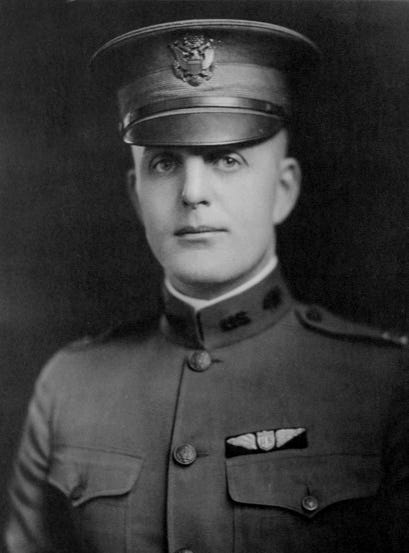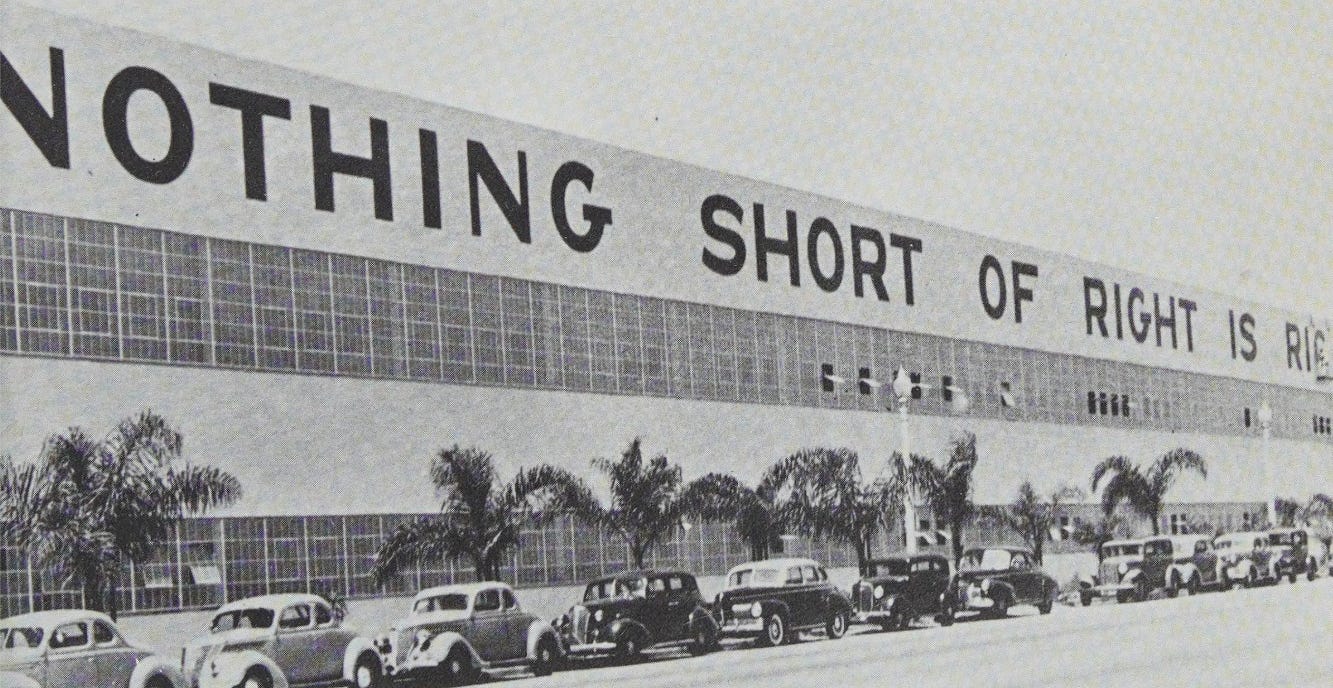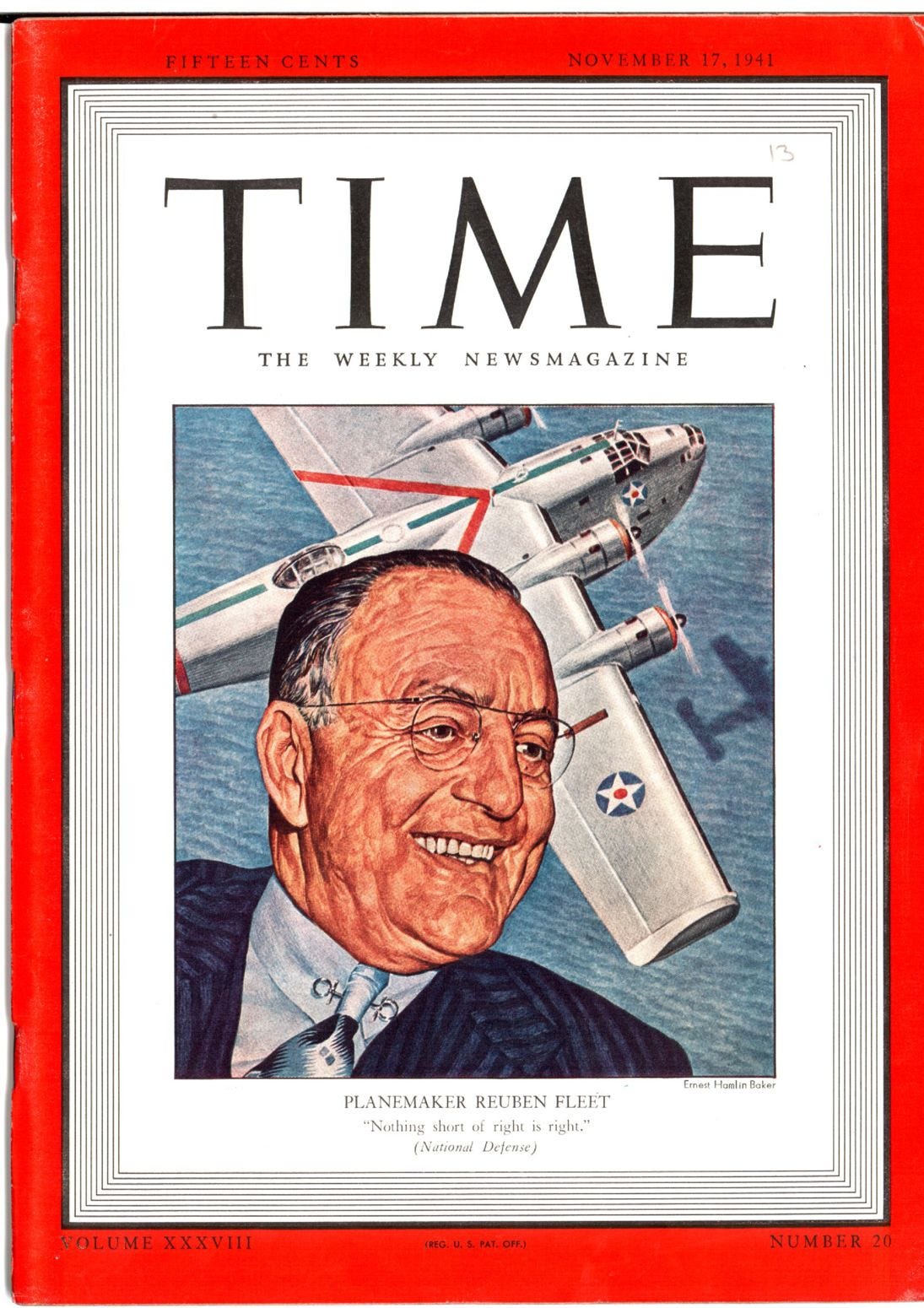Quality Over Quantity
Major Reuben Fleet of Consolidated Aircraft Corporation
Is it worthwhile to always strive for excellence in whatever we choose to do? Should we ever prize speed over quality? Expediency over principles? Is perfection the enemy of good?
The answer is likely, “It depends.” The answer can change based on one’s background, perspective, or the circumstances.
Balthasar Gracián, whom I’ve written about before, has one passage on this subject from his Art of Worldly Wisdom:
xxvii Prize Intensity more than Extent.
Excellence resides in quality not in quantity. The best is always few and rare: much lowers value. Even among men giants are commonly the real dwarfs. Some reckon books by the thickness, as if they were written to try the brawn more than the brain. Extent alone never rises above mediocrity : it is the misfortune of universal geniuses that in attempting to be at home everywhere, are so nowhere. Intensity gives eminence, and rises to the heroic in matters sublime.
In my recent research on Consolidated Aircraft Corporation, I’ve learned quite a bit about its founder, Major Reuben H. Fleet, a man with high standards and an obsession with quality, who undoubtedly prized “intensity more than extent.”
Major Reuben H. Fleet
Major Reuben H. Fleet won his Army pilot wings in 1917, a time when military flying was still in its infancy. He helped organize the first air mail service between New York and Washington, D.C., in 1918. He was then the Army Air Service’s chief contracting officer after World War I and then founded Consolidated Aircraft in 1923.
In the early years of the business, Consolidated sold several highly popular lines of biplane trainers. It would then design several successful lines of flying boats, and a heavy bomber, that became instrumental in World War II. The PBY “Catalina” flying boats and the B-24 “Liberator” bombers were the end result of crucial R&D during the 1930s. The B-24 was notable for the fact it was the plane produced in the greatest quantity of any other aircraft during the war. Over 19,000 B-24s were built between 1940 and 1945.
“Where there is no vision, the people perish.”
After Germany invaded Poland in September 1939, France and Great Britain declared War. France was the first and most desperate for orders of the B-24 immediately after the first test flights. France ordered 60 bombers with an option for 120 more and Britain ordered 164 bombers. But when France fell in June, Britain took on France’s bomber order.
“Where there is no vision, the people perish,” is a passage from the bible (Proverbs 29:18) Major Fleet frequently used. The task at hand was to produce excellent planes for people that desperately needed them.
The first 26 B-24s would be sent to the Royal Air Force in 1940 under the model name LB-30A. At the time, the Brits were so hard-pressed that they took the first 5 of 26 before Consolidated completed their static tests on the planes. This is what Fleet said later when they were finally able to test plane No. 6:
“We tested No. 6 and found it failed at 92% in high incidence. Both the British engineers and our own people thought it was strong enough. My standard was 100%. I didn’t like the idea of having a standard and then not meeting it. I insisted the British return the five planes for rework. They protested they couldn’t spare them. I told them to return them one at a time and that the day they returned each one we would give them a new one also, taking cognizance of all the problems which had shown up. They would lose just the time in flying from eastern Canada to San Diego and back, and I wouldn’t have five airplanes flying around, goodness knows where, under-factored as so safety.”
Fleet readily absorbed the cost of reworking the first five bombers:
“It cost us a quarter of a million dollars, but after all we had our standards—as near perfection as possible. We simply wouldn’t condone having them flying our airplanes with any basic deficiency. Our philosophy was ‘Nothing Short of Right is Right.’ That was our motto and in May 1941 we painted it in letters nine feet high across the longest building we had to force our people to think about their responsibility for quality workmanship. We tried to set an example with the rework done on those first LB-30s; that you can’t cut corners and get by with it.”
Summary
In Robert M. Pirsig’s book, Zen and the Art of Motorcycle Maintenance (published the year before Fleet’s death in 1975 at the age of 88), its almost as if Pirsig was writing on behalf of Reuben Fleet:
“The test of the machine is the satisfaction it gives you. There isn’t any other test. If the machine produces tranquility it’s right. If it disturbs you it’s wrong until either the machine or your mind is changed.”
― Zen and the Art of Motorcycle Maintenance: An Inquiry Into Values
Fleet would not compromise on his value of performing quality work. During trying times it might be understandable to make compromises, to sacrifice quality at the altar of expediency. Fleet would not do this even during war. But perhaps this is the true mark of high standards: to always strive for quality, especially during turmoil, or even when your own customers are willing to settle for less.
After thinking deeply again about the idea of quality for the last few weeks, there will always be circumstances where trade-offs with quality should be considered. However, of the many factors that are weighed on the scale of a business decision about a product or service, quality will always have the highest weighting. Without setting and meeting a quality standard first, you cannot then pursue speed, efficiency, quantity, or variety.
And when it comes to how or why any person or business becomes exceptional, I do think the most common driving force is an obsession with quality. Steve Jobs had that obsession. Reuben Fleet had that obsession. In the hunt for businesses in which to invest or people with whom you want to partner, it seems a good idea to first determine what they think about quality and how they act on it.
Please Subscribe
If you enjoyed this content, please share and subscribe.
Sources and Further Reading
Wagner, William. Reuben Fleet and The Story of Consolidated Aircraft. Aero Publishers, Fallbrook, CA, 1976.
“Builder of Big Ships”, TIME, November 17, 1941.
Gracián, Baltasar. The Art of Worldly Wisdom. Translated by Joseph Jacobs, published by Macmillan in New York, 1904.
Disclaimers
The content of this publication is for entertainment and educational purposes only and should not be considered a recommendation to buy or sell any particular security. The opinions expressed herein are those of Douglas Ott in his personal capacity and are subject to change without notice. Consider the investment objectives, risks, and expenses before investing.
Investment strategies managed by Andvari Associates LLC, Doug’s employer, may have a position in the securities or assets discussed in any of its writings. Doug himself may have a position in the securities or assets discussed in any of his writings. Securities mentioned may not be representative of Andvari’s or Doug’s current or future investments. Andvari or Doug may re-evaluate their holdings in any mentioned securities and may buy, sell or cover certain positions without notice.
Data sources for all charts come from SEC filings, Koyfin, and other publicly available information.






